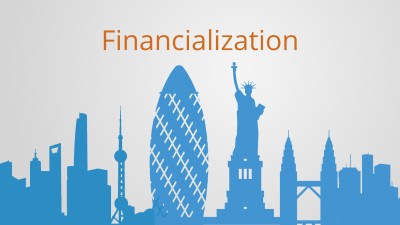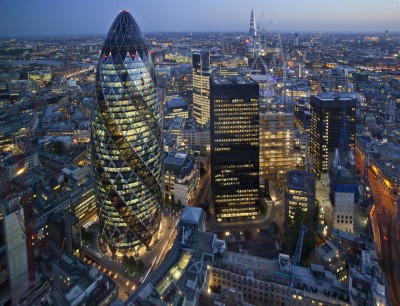The Beginning of a Journey
Technology has always presented us with many questions about who we are, our place in the world, how technology relates to humanity and where are we going. Human beings and human culture have an inherent need for an integrated picture of the world and our place within it. Ever since the earliest remnants of civilization, and probably before, we have constructed stories about ourselves, our origins and our place in the world. This is the stuff of legends, stories, myths and religions, traditional cultures are a cosmos of meanings; they tell us the significance of the world around us, our place and function within it.
These traditional cultures are of course based upon the context of human beings within the natural environment and the physical processes that are required for our survival and continued development. This context of humans in their physical, natural environment and the set of constraints that bound us to other creatures, the land, and ecosystems, provided us with a coherent understanding of ourselves, our place in the world and function. The agricultural revolution, the harnessing of animal muscle for energy, urban living, the rise of large empires, written text and stored culture all gradually change the degree to which people were embedded within the natural environment, but these civilizations were always dependent upon the land, with the vast majority of the people at the bottom of the pyramid, tilling the soil.
“Any sufficiently advanced technology is indistinguishable from magic” – Arthur C. Clarke
With the scientific revolution, the modern era gave birth to a radical break from this traditional context. The abstract principals and mathematics of classical physics gave us a new-found understanding to the workings of our physical environment and with this new knowledge a much greater capacity to manipulate the physical environment around us. The Enlightenment gave us a new vision of ourselves that was congruent with the clockwork universe that Newton had painted for us, one that emphasized reason and individualism rather than tradition. With the modern era the idea of identity and self, became malleable, no longer fixed but subject to evolution and change, the modern individual was no longer bound by tradition, the individual person was now free to create his or her own world and place within it. And technology was central to this idea of being able to create our own world, machines were the icons and idols of the industrial age, some even dreamed that we could create a utopian world through technology.
Sociologists understand modernity (the modern era that started proximately 500 hundred years ago with the renaissance) as being marked by continuous technological and social change. At the heart of modernity is the process of industrialization that involves mass urbanization as the whole context to people’s lives change. As they become part of the technologically saturated environment of cities and factories, a new culture was born in response to this, mass culture, based around the community of the nation-state and our new found role as homo economicus that capitalism had ascribed. The modern era has shown us how plastic and malleable the human condition is, in its capacity to adapt to this “brave new world“ as we have gone from tilling the land to programming computers within just a few generations, through an open-ended journey without the sanctity of believing that the future is written in the stars. But of course not everyone is so confident about this journey of modernity, as the failures of our industrial systems of organization have become more apparent, the believe in homo economicus, in progress, in the idea of the individual as rational being, in the idea that science and technology can solve all problems and create an ever better world, these most fundamental ideals that supported us during the Industrial Age and gave us a sense of identity, purpose, place in the world and meaning have come under increasing attack and one might even say, widespread disillusionment.
“The danger always exists that our technology will serve as a buffer between us and nature, a block between us and the deeper dimensions of our own experience”-Rollo May
The World of Today & Tomorrow
Today the post-industrial world is upon us and we are moving into a new wave of technological development that is quite different from that of the Industrial Age. It is a technology revolution that is about information and knowledge but it is also about being able to engineer all aspects to our world, on all levels, and at almost all scales, creating a whole new engineered environment. Driving this technology revolution in the 21st century is what is sometimes called NBIC, an acronym for nanotechnology, biotechnology, information technology and cognitive science. Through nanotechnology and geoengineering, we can engineer our environment from the molecular level to the planetary level, with biotechnology we can now engineer both organic and non-organic systems, with information technology we have the capacity to design and manipulate how we see the world. With cognitive science and technology, we are starting to break down the divide between the subjective and objective.
For thousands of years, our capacity to manipulate our environment was limited and evolved relatively slowly, meaning that our understanding of ourselves remained relatively unchanged. During the modern era, this pace of technology change increased as had to our capacity to re-imagine ourselves within this new context. Today this rapid technological change it breaking down traditional divides and categories that our culture and identity depend on, assumptions about the divide between people and technology are being rapidly eroded and becoming outdated, assumptions about what exactly technology is, about our context within the natural environment. This state of rapid technology change requires a new paradigm in our understanding of technology, this new world that we are rapidly engineering and our place within it.
This acceleration, proliferation and fundamental change in the nature of technology threatens to outpaces our capacity to interpret it and create meaning for it, leaving us in an alienating world
What Is Technology?
To understand technology in a different way we need to first ask what it is, and that is not always the easiest question to answer. We can think about technology as a solution to some given set of constraints, it is part of a broader process, a process through which we try to achieve our needs and desires, to get from where we are now to some desired future state. We are cold and wish to be warm, we are poor and wish to be rich, sad and wish to be happy and so on, the process through which we get from where we are to where we want to be, from A to B. This process starts with us forming some conception of how our world is and imagining how it could be, this is the first stage in the process, the next stage consist of us creating a solution to the set of constraints that are preventing us from getting to where we want to be. If I want to be rich I need to figure out how to do this, if I want to get to the other side of the river I need to engineer a solution, a bridge, this solution that gets me from A to B is the technology. Technology is also about automation, automation means done or occurring spontaneously, without conscious thought or intention. Technology doesn’t just get one from A to B once it, in fact, automates the process, the next time I want to cross the river I don’t have to reinvent the wheel, I already have an automated solution, I just drive across the bridge and of course this solution can be easily duplicated.
But this is just one way of thinking about and using technology, as a tool that enables us to realize a process that takes us to where we want to be, thus enabling a different world. If we don’t go through this process, if we don’t have a conception of how the world is and how it could be improved, which gives us some direction, then technology starts to be an end in itself, we use it because it is available. When we use technology because it is available this means we do what technology makes possible, and this is a form of technocracy, where technology decides what happens and it leads to a world of endless possibilities without any having any meaning. A future of complicatedness, too many possibilities, which in many ways is the definition of randomness and chaos. This is the risk of moving forwards into a world of new technologies and the possibilities that they give us without any understanding of this new environment. If technology moves too fast without us being able to contextualize it, to understand how it is a tool to be used within that context, then we don’t have the frame of reference to understand how to use it appropriately and responsibly, meaning its usage can very easily become distorted. Technology offers us the possibility to do more and go farther, but without the context to define its appropriate usage it can be as destructive as it is creative.
“Potential for differences, diversity, options, choices, opportunities, possibilities and freedoms. Those are all basically the same thing. And those are the things that technology brings us. That’s what technology is bringing us: choices, possibilities, freedoms. That’s what it’s about. It’s this expansion of room to make differences. And so a hammer, when we grab a hammer, that’s what we’re grabbing. And that’s why we continue to grab technology, because we want those things.” – Kevin Kelly
A New Direction
Technology is just one part of a process through which civilization develops, by civilization I mean both the socio-cultural domain and the technical domain, both of these aspects need to be functioning and functioning together to get a balanced development. Humanity defines and drives civilization; the technological domain is the means to a specified end. Technology should be a solution, a means to execute on a predefined plan or set of instructs that have some direction, as such technology is part of a process through which we define some future desired state and then use technology as a means to achieving that end. We need technology in order to progress, but before that and more importantly we need some context, that is some understanding of the world, our place and function within it, out of which to define a course of progression, we then use technology to execute on this. If we develop technology for-technologies-sake without it being part of a process, without having some definition to humanity and its role, then we are simply presented with a world of possibilities that the technology enables without any of them having meaning or direction, the world and sense of self become disintegrated.
Civilization is developed through a process that spans from the cultural to the technical; in order to develop it properly, make real ”progress”, we need to go through the full process, social and technical. We need firstly, new breakthroughs in philosophy, humanities, art and culture, as the humanities help to paint an integrated picture of the world and ourselves within it through them we find meaning, direction and purpose. Technology only really has value when it is enabled by an understanding of ourselves and where we want to go, and then from this deploy the technology in order to get us there. So when we look out at the world of tomorrow faced with exponential technological development that is pulling us in a plurality of different directions, it seems to be creating a world of unfathomable complicatedness that simply unravels without context, as we wander farther and farther from the natural environment that we came from, without creating a new context to support us. Without an integrated picture of our world and our place within it, it is impossible for us to have a deeper understand of our role or function and from that the direction for the development of our global economy in the 21st century.
“You never change things by fighting the existing reality. To change something, build a new model that makes the existing model obsolete” – Buckminster Fuller
Information Age
Finding a new context and understanding for humanity means understanding our current stage of social, economic and technical development, the so-called information age. The information age has its own structure, context and order, its own environment, that goes beyond our traditional home within the natural environment and into one whose basic fabric is information and knowledge. It is only by having a deeper understanding of information, knowledge and our function in developing an information society that we can move forwards, maintain some integrity and direction.
At the heart of the Information Age is the structure of the DIKW framework that describes a hierarchical structure to data, information, knowledge and wisdom. The next generation of technologies are breaking down traditional structures, domains and categories that supported us, categories such as that of space, distance, location, the integrity of the body, the subjectivity of the mind, the dichotomy between personal and public, all these categories that gave our lives a physical context are being eroded by the next generation of technologies, but what remains is this irreducible structure to information and knowledge. By understanding this new context to the information age, our place and function within it, by building this structure into the systems we develop, we can find direction and develop a new symbiotic relationship with technology.
The information age is a journey, one that we are only just beginning






